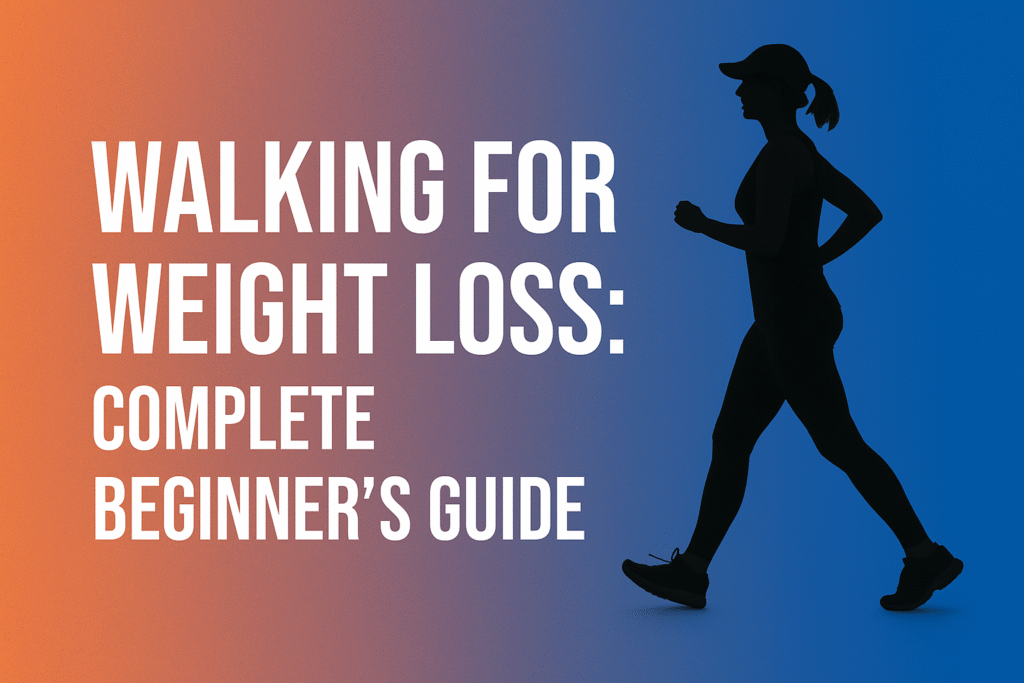Like many daily habits, this 20-minute walk can significantly improve your health.
Setting personal goals will help you get the most out of your walking. To make things easier, you can try walking a mile every day. 5 Benefits of Walking a Mile Every Day With all the health benefits, it’s a good idea for beginners to help them regain their fitness level. Plus, health experts suggest that starting out simple can help a person stick to a calorie-burning routine in the long run. So embrace the simple simplicity of a quick daily mile.

Plus, walking a mile every day doesn’t take much time. While everyone is different and your pace may vary from day to day walking a mile at a moderate pace often takes 15 to 20 minutes says Peloton coach, motivational speaker, and health influencer Marcel Dinkins. NSCA-certified trainer Alfonso Moretti agrees. He suggests aiming for a 20-minute mile. That’s the equivalent of walking 3 miles an hour, he says.
If you’re thinking about taking on this new fitness challenge and crossing it off your list, here’s everything you need to know about walking a mile a day, including the changes it can make to your body and ways to achieve this goal.
Benefits of Walking a Mile a Day:

From a health perspective, walking has its benefits. Plus, if you commit to doing it every day, the overall impact will be profound. Here’s what experts say you can expect when you start walking a mile a day.
Walking a Mile a Day Can Improve Your Heart Health
Regular activities like walking every day can improve your heart health. According to Dinkins, exercise, especially brisk walking, helps your heart and cardiovascular system.
Longevity:
Walking every day is thought to help people live longer, and interestingly, the more you walk, the better. “Walking has been shown to reduce all-cause mortality,” says Moretti. “In fact, the more you walk, the less likely you are to develop cancer, arthritis, heart disease, and other diseases.”
READ MORE: Eight-Week Chest Workout At Home
Staying active can improve your mental health, and walking improves it for many people. Dinkins notes that mental exercise and reducing stress levels can reduce the risk of depression: Walking (and other types of exercise) help clear your head.
Burning Calories:
Walking 1 mile a day, like any other form of exercise, burns calories. “Any movement burns calories, and when done consistently, it has a significant positive effect on your weight.” Your individual metabolism, speed, and other personal characteristics can vary the number, but most people burn about 100 calories per mile of walking.
Weight Loss:
As with any activity, the effects of walking are related to your previous activity level. “If someone walks a mile a day instead of doing nothing, they will tend to lose weight over a period of weeks to months. Other factors also help to further clarify what results to expect. “If you are eating a nutritious diet, are in a calorie deficit, and walk a mile…, you will lose weight.”
How to Walk a Mile a Day:

- Having the intention to walk a mile every day and actually doing it are two different things. Fortunately, experts recommend the following simple strategies for achieving your goals:
- Schedule your walks. If possible, you can walk to work, take a brisk walk during your lunch break, make it a ritual after dinner, or do it first thing in the morning.”
- Schedule your walks. Looking at a schedule and checking off your daily tasks can be especially beneficial mentally, explains Gentilcore. In my experience, when people can see consistency in their efforts, it often becomes a long-term habit.
- Gradually increase your daily walks. Moretti suggests starting with short walks of 5 minutes, up to 3 times a week. “Increase by 2 minutes every two weeks,” he adds. “After a few months, you’ll eventually be able to increase your daily walks to 20 to 30 minutes.”
- Break your walks into chunks. If walking a mile seems exhausting, consider breaking it down into smaller chunks that you can complete throughout the day. “Consistency is essential to achieving any kind of success.
Conclusion:
Developing the menial habit of punctually walking every day for a mile can improve one’s health drastically while taking a small amount of time. From enhancing the health of your heart, to improving mental well-being, and even helping with the weight management of your body, this simple exercise can significantly enhance your life. By setting goals for yourself, scheduling designated walks where you gradually increase your distance, you will develop a sustainable daily walking habit for the long term.
Discover the top 5 benefits of walking a mile every day which includes: mental wellness, heart health, longevity, burning calories and weight loss. Learn expert tips on how to build a walking routine and make it a daily habit to achieve long lasting fitness and overall wellbeing.
FAQ
Q1: How long does it take to walk a mile?
- If you are looking to walk a mile in the most cost effective way, then walking at a moderate pace for 15 to 20 minutes will help you get there.
Q2: What are the health benefits of walking a mile every day?
- Having daily walks will help improve your heart, increase longevity, boost mental wellness, burn calories, and support an overall healthy body.
Q3: Can walking a mile a day help with weight loss?
- If you want to shed some pounds, then walking every day with a balanced nutritional diet will accelerate your weight loss.
Q4: What is the best way to maintain a daily walking routine?
- Consistency is key, so set a schedule for your walks. Initially, you can start with shorter walks and build up to longer durations over time. It also helps to break walks into smaller segments done throughout the day.
Q5: Is walking 1 mile sufficient exercise?
- For those just starting out, walking a mile every day is a great starting point, and the health benefits are considerable – especially if it’s a daily habit.




